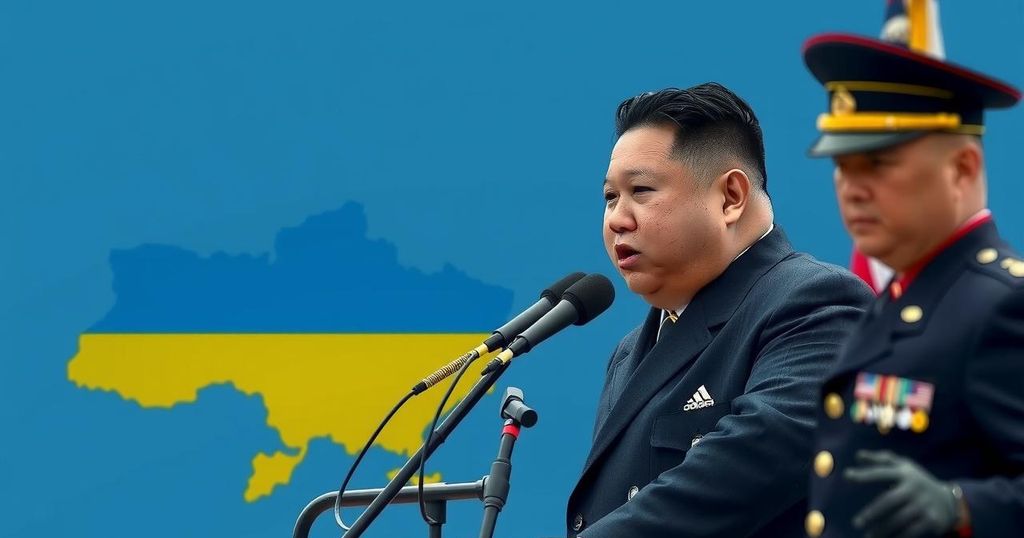World news
ANTONY BLINKEN, BLINKEN, DEFENCE, ENERGY INFRASTRUCTURE, EU, EUROPE, EUROPEAN UNION, GERMANY, JOSE, JOSEP BORRELL, KA, KOREA, MIDDLE EAST, MILITARY, MILITARY SUPPORT, NORTH AMERICA, NORTH ATLANTIC COUNCIL, RUSSIA-UKRAINE WAR, UNITED STATES, US, US STATE DEPARTMENT, WAR, WHITE HOUSE
Daniel O'Connor
0 Comments
U.S. Calls for Firm Response to North Korean Troops in Ukraine Conflict
U.S. Secretary of State Antony Blinken asserted the need for a “firm response” to North Korea’s troop deployment with Russian forces in Ukraine. This escalation raises concerns over future U.S. aid to Ukraine, especially with Trump’s political resurgence. Concurrently, NATO leaders discuss the significant role of China and the implications of weapons deliveries from Iran to Russia, pressuring Europe to increase its defense contributions.
During a diplomatic engagement in Brussels, U.S. Secretary of State Antony Blinken emphasized the necessity for a “firm response” to North Korea’s deployment of troops alongside Russian forces in the ongoing Ukraine conflict. This situation signifies an escalation, as North Korean soldiers have been confirmed to engage in combat operations in the Kursk region of Russia. Addressing NATO and EU officials, Blinken highlighted the urgency of ramping up support for Ukraine, especially in light of the potential implications of Donald Trump’s re-election on future U.S. aid. Meanwhile, NATO officials, including Secretary General Mark Rutte, addressed concerns regarding China’s support of Russia and the implications of Iranian arms deliveries on regional stability. Blinken’s visit is underscored by the geopolitical pressure resulting from Trump’s win, creating apprehensions about U.S. assistance to Ukraine amid its war with Russia. Reports indicate that Trump has been critical of expansive military funding and has expressed admiration for President Putin. With more than $9 billion in aid remaining unallocated by the Biden administration, there is a concerted effort to expedite this assistance. Analysts anticipate continued support in terms of combat vehicles and medical supplies, although the U.S. is unlikely to change its stance on Ukraine’s use of long-range missiles. While the Biden administration seeks to finalize support before Trump takes office, European leaders are urged to bolster their own defense commitments amid these developments.
The ongoing conflict in Ukraine has evolved into a complex geopolitical issue, particularly as North Korea’s involvement alongside Russia introduces new dynamics. Blinken’s meeting with NATO and EU leaders is critical, as it seeks to maintain and strengthen support for Ukraine’s defense against Russian aggression. The potential return of Donald Trump to the White House adds uncertainty to U.S. foreign policy, particularly regarding military aid commitments, raising alarms in Europe as they confront their political and economic challenges amid the conflict.
In summary, the recent deployment of North Korean troops in Ukraine alongside Russian forces has prompted a strong U.S. response, stressing the importance of coordinated international support for Ukraine. As the political landscape shifts with the potential return of Donald Trump, concerns grow regarding the future of American military aid, prompting calls for Europe to enhance its own defense strategies. This evolving scenario underscores the interconnected nature of global security and the critical need for united efforts against aggression.
Original Source: www.barrons.com




Post Comment